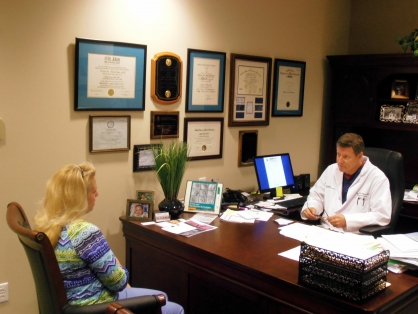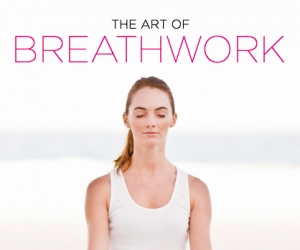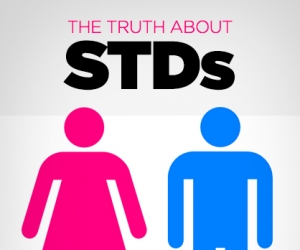The Link Between Wellness and Fertility
Find out what to do to protect your fertility
Infertility is heartbreaking. It’s easy to think that you have nothing to worry about when you’re still a few years – or more – away from plans to become a parent. But once a couple begins trying to conceive, and it doesn’t happen, the reality is shocking and painful. Yet it is very common, as one out of six couples experiences infertility when trying to create a family.
While eventual infertility can’t easily be determined in advance, there are things that a woman can do to protect her fertility in those years before she begins trying to conceive. There is a distinct connection between wellness and fertility. Eating natural foods absent of pesticides and antibiotics can help, as well as keeping a healthy weight and exercising regularly. Acupuncture is also beneficial, with its stress reducing effect and, once a woman begins trying to conceive, the ability of acupuncture to redirect blood flow to the uterus and thicken the lining to facilitate the implantation of an embryo.
No matter what stage of the process you are in, whether years away or in the midst of the heartache of infertility, our experts share information that can help you gain knowledge about the link between wellness and fertility. LadyLUX talked to two top fertility specialists: Dr. Hal Danzer, reproductive endocrinologist and co-founder of Southern California Reproductive Center; and Dr. Peter Ahlering, medical director for the Missouri Center for Reproductive Medicine.
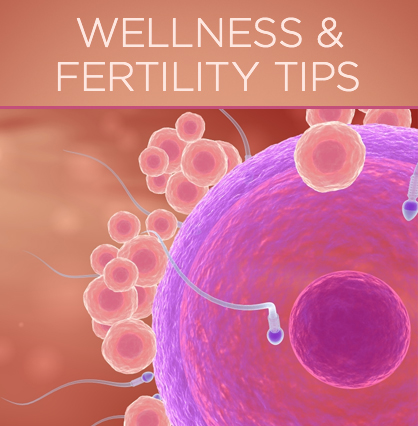
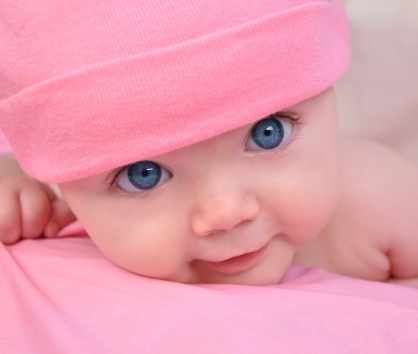
LadyLUX: What is the definition of infertility?
Dr. Ahlering: Fertility as defined as ovarian reserve or ‘egg reserve’ starts to decline in the late 20s for women. This is why screening is so key as mentioned above since one cannot know where she stands with ovarian/egg reserve unless you check these things. I advocate doing so with all women late 20s or early 30s. This is slightly controversial but if done properly and results discussed, it can be a tremendous help to young women. Infertility is defined as one year of ‘trying’ to conceive in the presence of normal monthly menses and no known other male or female medical factors that may affect fertility. There are several caveats with this definition that are too involved to get into here. Suffice to say that ‘normal menses’ are key. If the male is older than 40 years and the female over 35, it is best to discuss things and perhaps check simple tests sooner rather than later.
Dr. Danzer: Infertility is traditionally defined as the inability to conceive after twelve months of regular unprotected intercourse. According to guidelines set forth by the ASRM, women over 35 years of age are now encouraged to seek fertility evaluation and appropriate infertility treatment if they fail to conceive after only six months of trying.
LL: When does fertility start to decline?
Dr. Ahlering: Well this is a tough question also as there are several caveats as well. The basic answer is to seek a specialist sooner rather than later when there are irregular menses (not monthly typical flow), if the male is >40 and female > 34, there are additional medical issues in the couple—-(many of these issues are noted above) or in general there are concerns that there is some problem, concerns or questions that need to be answered properly from a medical professional perspective (not the internet..). Of course, if the couple is trying to conceive as defined in #4 and not successful.
Dr. Danzer: On average, the ovary begins to diminish its reserve at age 35. There is a good amount of individual variation, so it could be in early 30s for one person but early 40s for another. But on average it is around age 35.
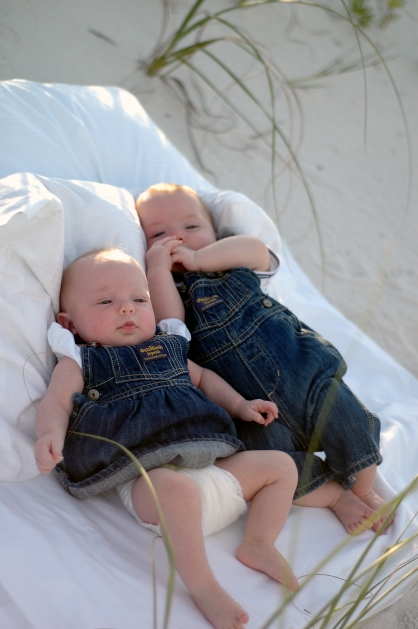
LL: Many women don't realize they have infertility issues until they are in their 30's and trying for the first time to have a baby. What should a woman do to protect her fertility even before she's ready to try to conceive?
Dr. Ahlering: There is not much one can do to ‘protect’ fertility other than avoiding obvious bad habits such as smoking or tobacco use of any kind … males and females. Things one can do (as opposed to avoid) are: exercise, maintain appropriate weight, keep the cholesterol in check (total cholesterol, HDL and LDL; this goes for males as well). These suggestions apply to women considering conception at all ages. One can screen for fertility potential very easily and I personally recommend that this be done. It is easy and inexpensive if not even covered by insurance. I frankly wish all women considering future childbearing would have this screening done and discuss with someone the results. It is too easy not to do it. I wish I could have this life-altering, eye opening conversation more often.
Dr. Danzer: At age 20, it is important for women to have good nutrition and to exercise. Obesity is such a problem today, and that relates to problems in pregnancy and getting pregnant. If women have irregular cycles or skipped cycles, they should consult their gynecologist and get an evaluation. To some degree, being on birth control pills can save a women’s fertility by lessening their chance of an ovarian cyst and suppressing endometriosis.
At age 30, a woman can ask their gynecologist to perform an AMH test to make an assessment of their ovarian reserve. If anyone has a diminished reserve, they need to at least talk with their fertility specialist. However, in their late 30s women should seriously consider starting their family, as 15% of women in their mid to late thirties have trouble conceiving. I recommend women use an ovulation predictor kit to get specific. If they fail to get pregnant in 6 cycles, they should get an evaluation. The ideal would to be to try by age 35/36. Their partner should also get a semen analysis, as 20-25% of infertility may be from lower sperm counts, and the analysis is simple and inexpensive.
At age 40, women should definitely start with predictor kits during their cycle. After three months of trying without conception, they should get tested as well as have a semen analysis done. They should see their gynecologist about other blood tests, FSH, AMH, and hyroid screening. Any woman who has tried and failed after 6 cycles should consult a reproductive endocrinologist.
LL: Are environmental hazards related to infertility issues?
Dr. Ahlering: Environmental hazards and exposures can be related to fertility issues, mostly for me we think however. Clearly for women, things like toxic chemicals and radiation exposure (not basic X-rays, however) can be a concern. That said ‘environmental’ exposure can also include smoke/smoking, clearly not good for anything, including fertility.
Dr. Danzer: Maybe. There are a good amount of studies in progress that look at potential environmental factors that may affect both male and female fertility, but there is no solid identification of factors presently. Some things that women who are considering getting pregnant should avoid are secondhand smoke, alcohol intake, living next to a freeway, driving with the windows open and inhaling fumes, living underneath high voltage towers, etc.

LL: How impactful is a healthy diet to fertility? Do chemicals in foods, hormones, antibiotics in chicken and meat, have an impact?
Dr. Ahlering: Healthy diet is important for everyone and goes hand in hand with maintaining proper BMI/weight. Chemicals in typical foods and antibiotics in meats are not known to affect fertility however.
Dr. Danzer: There aren’t any studies that prove that any food additives or hormones impact one’s fertility. The general recommendation is to maintain good nutrition and a balanced diet to attain a more ideal weight, which is a clear factor in identifying fertility issues and healthy pregnancies.
LL: Does acupuncture improve fertility?
Dr. Ahlering: Acupuncture is not known to improve fertility or make treatments more successful, however this is not to say that there are not benefits to using it in the context of fertility treatments. It can be a useful adjunct but not helpful as the sole treatment per se.
Dr. Danzer: Acupuncture has great relaxation potential. It moves the body to a place of harmony. There are studies that support increased pregnancy rates with IVF. It may allow the individual to respond better or in an enhanced fashion to fertility treatment.
LL: Are there herbs that can be taken to improve fertility?
Dr. Ahlering: As with acupuncture, herbs, antioxidants, vitamins and other supplements are useful in some circumstances as adjuncts to fertility treatments but not in lieu of fertility treatments or as ‘stand alone’ treatments. One must interpret the voluminous information out there properly or one can get buried in advice and supplements that delay proper fertility treatments. So seeking professional advice on this can be very, very helpful for couples.
Dr. Danzer: Acupuncturists and herbalists commonly prescribe traditional herbal therapies. The FDA has never identified specific herbal therapies that enhance fertility, however these herbal therapies are probably safe and have been used for generations to enhance fertility. However, well designed studies have not been performed at this time.
LL: Do weight and exercise matter?
Dr. Ahlering: Exercise matters most definitely on many levels for overall health and fertility. Weight also for sure is important to properly maintain, the Body Mass Index can be useful guide of course as well as weight itself. Diet, exercise, weight are all important things and can be discussed and monitored in the context of fertility therapies.
Dr. Danzer: Very low body weight may interfere with quality of ovulation or ovulation may actually cease for women under 100 pounds. Studies are emerging that women over 250 pounds have much more difficulty conceiving, and they tend to have higher miscarriage rates and greater complications from elevated blood pressure during pregnancy. They also have higher rates of preterm labor.
I am a strong advocate of exercise for preparing for fertility. IT has a relaxation component, it has the opportunity to get the body prepared for healthy pregnancy, and it certainly allows the individual to achieve an ideal BMI before attempting pregnancy. Over exercising may decrease ones chance of getting pregnant. Studies suggest that professional athletes or marathon runners, these individuals who have significantly decreased body fat may have problems with ovulation.
LL: Is there anything else a woman can protect her fertility and improve her wellness?
Dr. Danzer: Stress management. Stress is difficult to quantitate in an individual. Stress reduction has been shown in many studies to improve fertility. Women anticipating starting a family should arrange her to minimize or at least manage her stress, as there are always different techniques to manage, whether it be emotional stress, financial stress, etc.
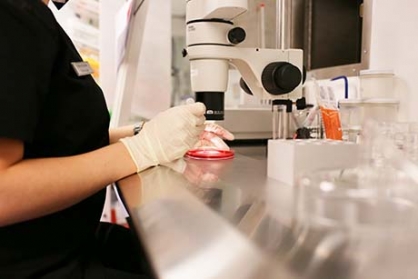
LL: Is there a certain age where a woman should stop trying to conceive, or consider IVF with donor eggs?
Dr. Ahlering: Donor eggs, in general, can be considered in the case of diminished ovarian reserve. This is again so key to look at as mentioned above. A woman should know what reserve is and more importantly her own ovarian reserve. The best way to determine early the fertility potential is the ovarian reserve testing. Egg freezing and egg banking are certainly options for those who want to postpone pregnancy for personal reasons or medical conditions—-this is now a cost effective and fairly straightforward option that many feel is beneficial. Likewise embryo freezing is an option for such ‘fertility preservation’ and fertility postponement. One can step up plans to improve the fertility potential and timeline for sure, there are options for this and I would suggest speaking to a fertility specialist to understand these ideas where indicated.
Dr. Danzer: At age 44 and above, the successful full term pregnancy with any fertility treatment including IVF is less than 2% per cycle.
LL: Is there a way for a woman to tell early on if she has potential fertility issues?
Dr. Danzer: It all comes back to AMH levels. Every woman should try to check her AMH in her early 30s. There are several symptoms or signs that could predict fertility issues as well, including: very painful periods that are increasing yearly, which may suggest pelvic endometriosis which may interfere with pregnancy; A woman who has had a pelvic infection or abdominal surgeries may have more difficulty conceiving; women with very irregular menstrual cycles; a woman who has more than two miscarriages; Women who have abnormalities of the uterus such as fibroids polyps or benign conditions that may interfere with pregnancy.
